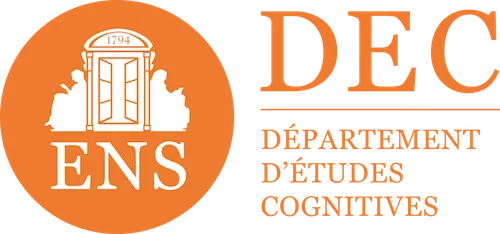

LMS Training: Innovative Solution to Transform Learning
The world of vocational training is changing rapidly, with the rise of Learning Management System (LMS) platforms that are revolutionizing corporate learning methods. Whether you are a small business looking to train a few employees or a multinational company looking to harmonize its courses globally, the LMS is becoming an essential training management solution.
We are going to dive into the world of LMS training and discover how this technology is improving online learning within businesses.
What is an LMS course?
The LMS, or Learning Management System, is an online platform that centralizes and organizes all of a company's training courses. It makes it possible to manage, distribute and monitor distance learning programs while integrating accurate data on learner performance. The main advantage of this solution is its accessibility. Employees can take modules from LMS vocational training wherever they are, at their own pace.
As a training management system, the LMS replaces traditional face-to-face training methods. It makes learning more flexible, more engaging and above all more accessible, facilitating the development of skills. LMS training therefore makes it possible to create a modern, interactive and individual-oriented learning experience, while supporting the creation of content adapted to the specific needs of users.
In the field of online learning, two technologies are often confused: the LMS (Learning Management System) and the LCMS (Learning Content Management System). Despite the similarity of their names and some common features, these tools have distinct purposes. The LCMS focuses mainly on the creation, management and distribution of educational content. While the LMS manages the administration and monitoring of training courses, the LCMS is more specialized in the design and organization of learning resources. These two tools are therefore complementary in the world of digital learning.
Why use an LMS for training?
Using a Learning Management System for training has many advantages over traditional online learning methods.
The LMS offers unparalleled flexibility
Unlike face-to-face training that requires careful planning and the physical presence of employees, an LMS platform allows learners to take courses at their own pace, wherever they are and at any time. Whether from the office or remotely, everyone can access training content without constraints, thus promoting better time management.
Centralization of educational resources
All content is accessible in one place: documents, videos, videos, quizzes, case studies, etc. This facilitates learning and allows instructors to update courses in real time, ensuring that the information provided is always current and relevant. This ability to adapt training modules quickly is particularly valuable in rapidly changing sectors.
Monitor and assess learners' progress
LMSs often include detailed analysis tools that measure the engagement and success of training participants. This allows managers and trainers to adjust the courses according to individual performances and needs, thus offering more personalized and effective learning.
The impact of LMS on lifelong learning
In a world that is constantly changing, skills are rapidly becoming obsolete. The Learning Management System plays a key role in the implementation of continuous learning within the company. It helps to create a training culture throughout the career of employees.
Thanks to modular training, accessible at any time via the online platform, the Didask LMS promotes the regular updating of skills. Whether it is to keep up to date with the latest trends in its sector, develop new skills or meet specific business needs, LMS training is part of a dynamic of continuous improvement.
Focus on corporate culture to accelerate transformation
Innovation and adaptability are key drivers of success and corporate culture plays a key role in organizational transformation. Choosing an LMS solution to structure and deliver training internally reinforces corporate values and culture. By aligning training content with strategic goals and company values, you promote learning that is in line with your organizational priorities.
The LMS platform then becomes a powerful tool to accelerate the cultural transformation of the company. For example, if your company values collaboration and knowledge sharing, a Learning Management System like Didask, which integrates social learning and learner interaction functionalities, will allow you to encourage these behaviors on a large scale.
In addition, by integrating training on topics specific to corporate culture, such as ethics, diversity and inclusion, or digital transformation, you anchor these values in the daily lives of your employees. This process helps create a learning environment that is consistent with the identity and goals of the company, while promoting stronger team engagement in training programs.
Why choose an LMS for company training?
Choosing an LMS to train employees is a strategic investment that can radically transform the learning, management and skills development processes within the company. By opting for an LMS, businesses ensure a scalable solution that can grow with them. Whether you need to train 10 or 1,000 employees, an LMS (Learning Management System) adapts to your needs, while maintaining a seamless experience for each user.
Another essential aspect is the reduction of training costs. Organizing face-to-face training can quickly become expensive, especially if it involves travel, room rentals and additional costs. With an LMS, these expenses are eliminated because everything is done online. In addition, the courses can be used as many times as necessary, at no additional cost, which optimizes the return on investment.
Choosing an LMS for company training also means encouraging educational innovation. Platforms like Didask make it possible to integrate modern learning methods, such as adaptive learning, which adjusts content according to the needs of each learner, or simulations and serious games to make digital learning more interactive. This not only engages employees, but also maximizes knowledge retention.
Finally, an LMS helps create a culture of continuous learning within the company. Employees can access training throughout their careers, thus promoting their regular skills development and their adaptability to market changes. In a professional environment that is constantly evolving, an LMS is becoming a key tool for maintaining a competitive and innovative company.
The benefits of LMS training for businesses
Using an LMS for corporate training has many advantages that make it a popular solution for HR departments and training management departments.
1. Accessibility and flexibility
The main advantage of an LMS course lies in its accessibility. Employees can access training courses at any time, on any device. No need to block out entire days for in-person seminars. Thanks to the platform, employees can take their training according to their schedule, without disrupting their daily activities.
2. Customizing learning paths
Each employee has specific training needs and LMS platforms make it possible to offer personalized courses. With the Didask platform, for example, it is possible to configure training programs adapted to the skills and objectives of each employee, thus ensuring targeted skills development with personalized content.
3. Real-time monitoring and evaluation
LMS offer powerful analysis tools that allow you to monitor the progress of each learner in real time. Managers can visualize the progress of their teams and adjust training according to needs. Didask offers intuitive dashboards allowing detailed monitoring of skills development, thus strengthening the effective management of training courses.
4. Cost and time savings
Face-to-face training often requires numerous ancillary costs (travel, accommodation, room rental). An LMS platform reduces these costs and allows the company to make significant savings, while optimizing training time thanks to a fully digital system.
5. Collaborative and social learning
The LMS is not limited to the distribution of content. It also makes it possible to create communities of learners. With features like chat rooms, live chats, or collaborative workshops, employees can share knowledge and learn from each other. Didask particularly promotes this aspect by integrating social learning modules.

The course of an LMS training course
The training process through an LMS generally consists of several key steps. Here is how it works in concrete terms on the Didask platform:
1. Learner registration
Each learner receives personalized access to the LMS platform via a simple and intuitive interface. The company can add employees to specific training courses, according to their needs and objectives, with a fluid management system.
2. Choice of training path
Once connected, learners can choose or be assigned training paths. These courses may include video modules, readings, interactive quizzes, and practical workshops. Didask is distinguished here by the richness and diversity of its educational formats.
3. Progression at your own pace
One of the great benefits of an LMS is that each learner can progress at their own pace. Unlike classroom training, there is no time pressure. This flexibility is especially useful for employees who juggle multiple tasks on a daily basis.
4. Interactions and collaborations
Throughout the course, learners can ask questions, participate in discussions, or collaborate with colleagues. Peer interactions enrich learning, making the experience more engaging and immersive.
5. Assessment and certification
At the end of each course, learners take assessments to validate their skills. The certifications obtained can be added to their professional profile, thus strengthening their expertise within the company. With Didask, these assessments are intelligently integrated throughout the course, promoting progressive learning.
What training solution do you need?
The choice of a training solution depends above all on the specific needs of your company and your employees. Do you have a team that is geographically dispersed or working remotely? Are you looking to develop technical or managerial skills? Or do you need to monitor the results of your training courses accurately and in real time? These questions should guide your selection of a Learning Management System.
If flexibility is your priority, an LMS is the ideal solution. Indeed, it allows your employees to take modules at their own pace, wherever they are. If you want rigorous monitoring of progress and performance, opt for an LMS with advanced analytics features. A platform like Didask offers these two options, while offering tailor-made learning paths, adapted to the needs of each user.
If you have specific challenges such as regulatory compliance in a given sector, it may also be appropriate to choose an LMS platform that can offer recognized certifications or document each stage of the learning journey. Finally, your training solution must be flexible enough to evolve with your business and adapt to the new skills to be developed.
Why opt for the Didask LMS platform?
The choice of a LMS for a business is not done lightly. It is essential to opt for a tool that meets specific training needs while offering powerful tools. Here are a few reasons that make Didask an ideal platform for your business:
LMS and LXP combination
The Didask platform succeeds in combining the best of an LMS and the best of an LXP. That is to say, the rigor of an LMS with the flexibility of an LXP. A hybrid solution that allows companies to benefit from the necessary structure to manage training, even complex ones, while offering learners a personalized experience.
A platform focused on pedagogy
Unlike many LMSs that focus only on the logistical management of training courses, Didask makes a point of optimizing learning. Its technology is based on solid pedagogical principles, guaranteeing effective and sustainable knowledge transfer.
Action-based training
At Didask, the philosophy is simple: you learn better by doing. The modules offered include simulations and practical exercises that allow learners to directly apply what they are learning. This approach significantly improves the retention of knowledge and the ability to use it in the professional context.
Adaptive learning
Each learner has a different skill level and a different way of learning. Didask integrates adaptive learning functionalities, which adjust the content and difficulty of the modules according to the performance of the learner. This ensures personalized and optimized training for each user.
Tailor-made support
Didask doesn't just provide a platform. The team offers personalized support for each client, in order to configure the platform according to the specific needs of the company and to maximize the results of the training.
Compliance with RGPD standards and security
With the multiplication of sensitive data exchanged on LMS, security is a crucial issue. Didask guarantees the confidentiality of personal data and compliance with RGPD standards, thus ensuring the serenity of companies in the management of information.
LMS training is establishing itself as a new standard in the vocational training landscape. It offers flexibility, customization, and efficiency that is unparalleled compared to traditional methods. By choosing a platform like Didask, you ensure that your employees have an optimal, engaging learning experience that is in line with the requirements of the modern professional world.
LMS training is no longer an option, but a necessity to remain competitive. Choose Didask to transform the way you train and learn, while strengthening the skills of your teams.
Make an appointment directly with our eLearning experts for a demo or simply more information.












